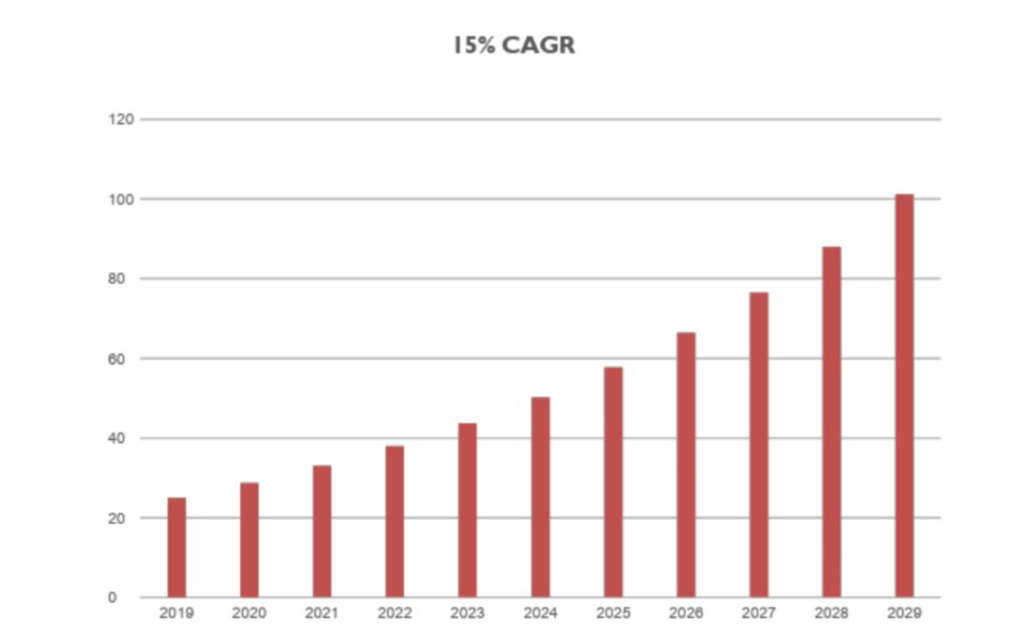A couple of weeks ago GitHub announced that it now has 100 million users. Having set a goal of 100m developers by 2025 back in 2019, it has blown through its prediction quite easily. Which makes early 2023 a particularly good time to run a conference about open source and open approaches to software development – see State of Open Con 23.
According to Thomas Domke, GitHub CEO:
Today, developers are no longer just people building software for technology companies. They’re an increasingly diverse and global group of people working across industries, tinkering with code, design, and docs in their free time, contributing to open source projects, conducting scientific research, and more.
In 2015, almost a third of developers on GitHub were from North America. Today, some of the fastest-growing regions are far away from the U.S., for example, in Southeast Asia, Africa, and South America. In India alone, more than 10 million developers use GitHub to build software. And in Brazil, over 3 million new developers use GitHub.
This global exchange of ideas is helping democratize who a developer is, what they work on, and where they live. Developers today are committing code, contributing documentation, and building new solutions to solve new problems on a global level.”
Even given significant caution about counting every GitHub user as an individual developer, these numbers show really impressive growth and traction. I have written before about the difficulty of counting and estimating developer populations, but GitHub user growth is as good a proxy for real developer growth as any. I have been assuming the world developer population will hit 100m in about 2029. No clever stats, just fairly conservative compound annual growth of about 15% would get us there.
What is obvious, and becomes clearer every day, is that open technology generally, and open source specifically, drive community growth and adoption. They are accelerators. Open source makes platforms accessible, makes learning accessible, ideally makes people and communities more accessible. Open source also drives positive economic outcomes and growth. Show me a geography with strong growth in open source adoption and I will show you an economy with a thriving tech ecosystem. That’s certainly the case in the UK – London is ranked number two for startup activity globally in numerous studies including the Startup Genome Project. The UK also leads Europe in open source activity, according to GitHub. Open source activity and economic growth go hand in hand. Sit at a desk at any startup with the engineering team and you’re going to hear the team talking about open source projects and products – that’s how they do their work. The cloud is bigger than open source, but couldn’t exist without it. All those SaaS, consumer apps and developer infrastructure services you use on the daily – all built with open source technologies and methods. Open source at software development before software ate the world.
The open technology economic flywheel is also increasingly obvious globally.
I would argue that we couldn’t see the explosive growth in tech in African countries without open source. In fact I did, in this piece Projecting Africa: software growth, ecosystems and the future arriving.
Open source, online learning, cloud services and hustle are really the charm, driving adoption of newer technologies and approaches. While universities are still teaching older programming languages such as C++ and Java, self taught developers are emerging with Javascript – which is of course the lingua franca of the modern web – and cloud skills. Advocacy, online teaching and learning and sharing are baked into the culture, which is creating a flywheel.
But open source doesn’t tend itself.
Code and communities need care and feeding, chopping wood and carrying water, in order to be sustainable. In the UK Amanda Brock had the idea that we needed an organisation to lobby on open technology’s behalf, and to help sustain communities and individuals working here. That idea became OpenUK, an organisation set up to develop UK leadership and global collaboration in technology. Now that idea has also fostered a new tech conference – State of Open Con. If you’re interested in open culture and technology this conference is definitely the place to be over the next couple of days. Tracks include security, platform engineering, sustainable open source, open hardware, open data, entrepreneurship, and government policy. The speaker list looks incredible but the hallway track is probably what I am most excited about. It will be great to see so many of my open source friends, in one place, without having to get on a plane to do so.
See you there.
disclosure: GitHub is a RedMonk client.


No Comments